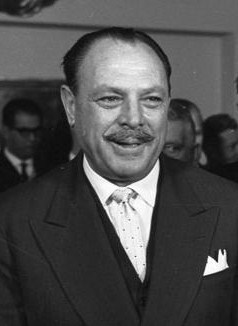
Muhammad Ayub Khan
Muhammad Ayub Khan was a prominent Pakistani military and political leader who served as the President of Pakistan from 1958 to 1969. He was the first military ruler of Pakistan, coming to power through a coup d'état, and is known for introducing significant economic reforms and modernization efforts. Ayub Khan's era is often associated with rapid industrial growth and the development of infrastructure, but it was also marked by political repression and increasing tensions in East Pakistan, which eventually led to the secession of Bangladesh. His leadership style and policies have left a lasting impact on Pakistan's political landscape.
Born on May 14, 1907 (118 years old)
Global Media Ratings
Countries Mentioned
No country-level mention data available.
Interactive World Map
Each country's color is based on "Mentions" from the table above.
Recent Mentions
 Pakistan:
The only other person to have received this title in the country was President General Muhammad Ayub Khan, who was awarded it in 1959.
7
Pakistan:
The only other person to have received this title in the country was President General Muhammad Ayub Khan, who was awarded it in 1959.
7
 Sri Lanka:
Muhammad Ayub Khan was the President of Pakistan who signed the Tashkent Declaration in 1966.
6
Sri Lanka:
Muhammad Ayub Khan was the President of Pakistan who signed the Tashkent Declaration in 1966.
6
 Sri Lanka:
Muhammad Ayub Khan was the President of Pakistan who participated in the Tashkent Declaration.
6
Sri Lanka:
Muhammad Ayub Khan was the President of Pakistan who participated in the Tashkent Declaration.
6